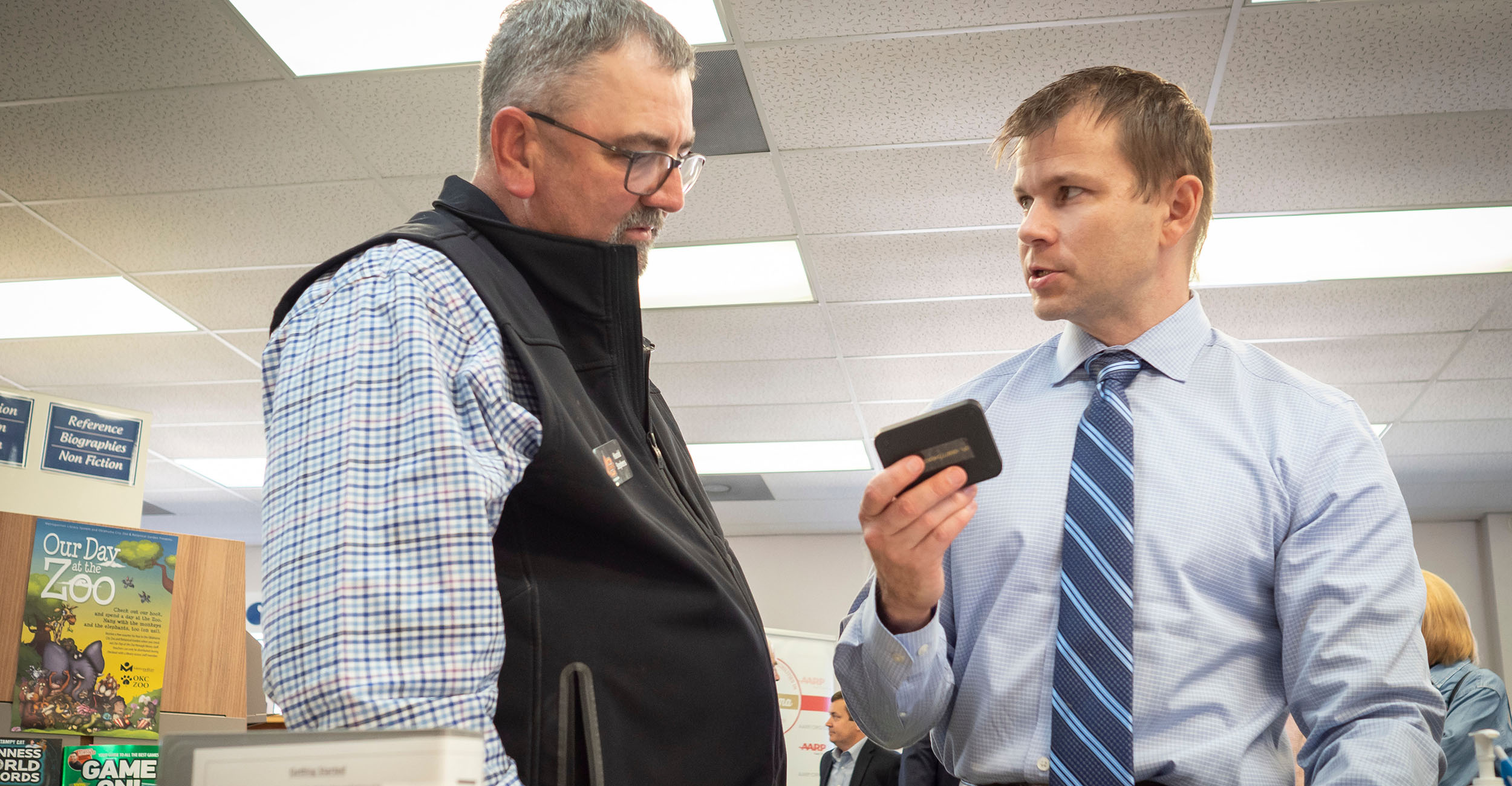
Oklahoma a national leader in adopting Emergency Broadband Benefit program
Friday, June 18, 2021
Media Contact: Donald Stotts | Agricultural Communications Services | 405-744-4079 | donald.stotts@okstate.edu
Oklahomans have been enthusiastic in signing up for the Emergency Broadband Benefit (EBB) program offered the Federal Communications Commission and promoted by Oklahoma’s Rural Broadband Expansion Council.
EBB is a temporary program to help families and households struggling to afford broadband internet service during the COVID-19 pandemic.
“Oklahoma had nearly 20% of its program-eligible households sign up in the first three weeks of the program, the fourth-best rate in the nation,” said Brian Whitacre, Oklahoma State University Extension rural development specialist and holder of the university’s Jean and Patsy Neustadt Chair in Agricultural Economics.
That is nearly double the rate for Kansas and almost three times the rate for Texas, which came in at 11% and 7.6%, respectively. Only Nevada, Louisiana and Kentucky outpaced Oklahoma nationally.
“The numbers show that our outreach efforts to spread the word about this program across the state are having a positive effect,” Whitacre said. “They also show EBB was a much-needed program, and also underscores that cost is an important factor why many households don’t have a connection at home.”
Appointed to the broadband expansion council by the state Senate last year, Whitacre is recognized nationally for his research emphasizing the adoption of broadband — and not simply its availability — as being a key element of economic growth.
“Broadband matters more than many people realize when it comes to encouraging entrepreneurship, raising income levels, promoting civic engagement and helping with education,” Whitacre said. “It’s been challenging and satisfying to work on policies that we can put in place to encourage delivering broadband to rural areas.”
According to the FCC, about 70 mobile and fixed broadband providers in Oklahoma participate in the EBB program. The program will last only until the U.S. Department of Health and Human Services declares the COVID-19 pandemic is over or if the program runs out of money, whichever is sooner.
There are three ways to apply:
- Contact your preferred participating broadband provider directly to learn about their application process.
- Go to getemergencybroadband.org to apply online and to find participating providers near you.
- Call 833-511-0311 for a mail-in application and return it along with proof of eligibility to Emergency Broadband Support Center, P.O. Box 7081, London, KY 40742.
Whitacre urged anyone who thinks they may qualify to click on the EBB website, read about the program and take steps to apply if they’re eligible.
